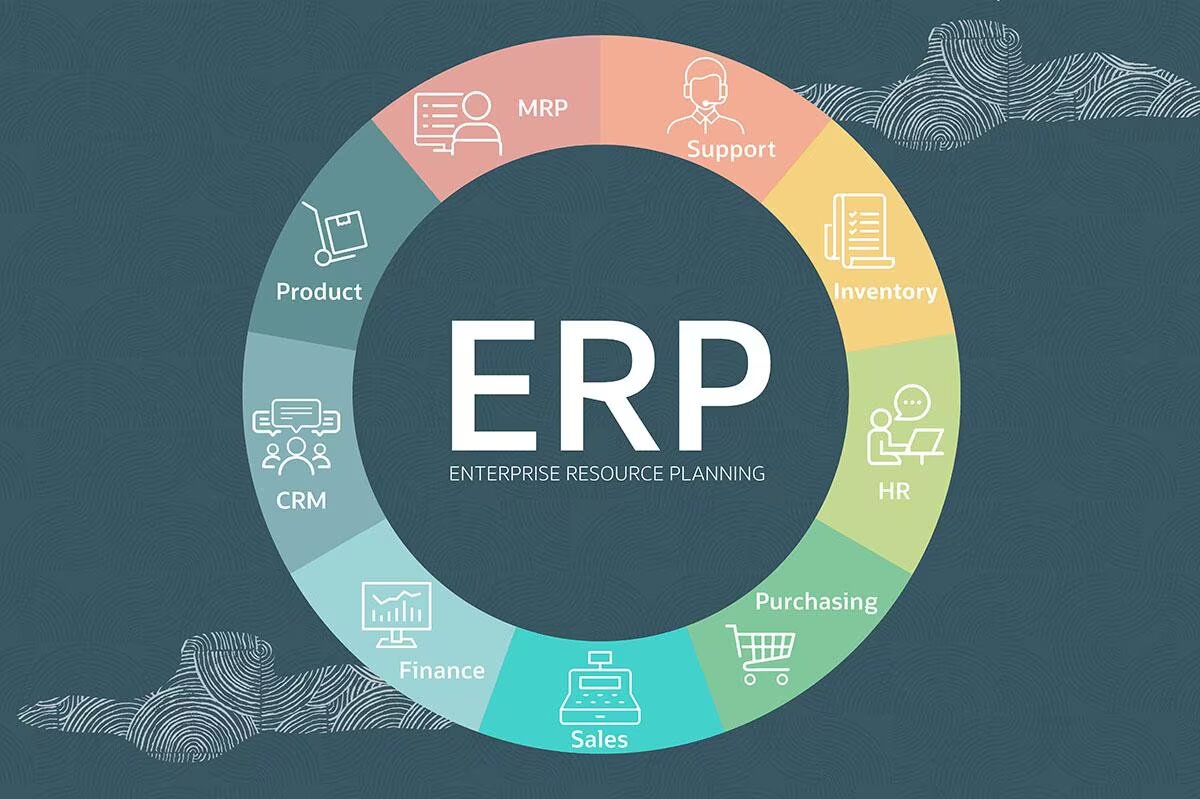
Oracle Cloud ERP Implementation: The Ultimate Roadmap to Achieving Success
Implementing an ERP (Enterprise Resource Planning) system can be a game-changer for any organisation. It streamlines business processes, enhances efficiency, and provides real-time insights into operations. One of the leading ERP solutions in the market is Oracle Cloud ERP.
This comprehensive guide will walk you through the benefits of Oracle Cloud ERP implementation, key considerations before starting the implementation, how to choose the right implementation partner, common challenges faced during the process, and best practices to ensure a successful Oracle Cloud ERP implementation.
Benefits of Oracle Cloud ERP Implementation
Implementing Oracle Cloud ERP offers numerous benefits for organizations of all sizes.
Firstly, it provides a unified platform for managing various business functions such as finance, procurement, supply chain, human resources, and more. This integration eliminates the need for multiple standalone systems, reducing complexity and improving data accuracy.
Secondly, Oracle Cloud ERP offers real-time analytics and reporting capabilities, allowing businesses to make data-driven decisions. With access to up-to-date information, managers can promptly identify trends, spot opportunities, and address potential issues.
Furthermore, Oracle ERP implementation is a scalable solution, meaning it can grow with your business. Whether you are a small startup or a large enterprise, you can customize the system to fit your specific needs and add modules as your requirements evolve.
Key Considerations Before Starting an Oracle Cloud ERP Implementation
Before embarking on an Oracle Cloud ERP implementation, there are several key considerations that you should keep in mind.
- Assess organisational readiness for change: Evaluate if your employees are prepared for the transition and provide training and support to facilitate the smooth adoption of the new ERP system.
- Define implementation goals and objectives: Clearly outline what you aim to achieve with the Oracle Cloud ERP system, such as improving efficiency, reducing costs, or enhancing customer satisfaction. Having well-defined goals will keep you focused throughout the implementation process.
- Evaluate current IT infrastructure: Determine if upgrades or modifications are needed to support the Oracle Cloud ERP system. Consider factors like hardware requirements, network capabilities, and data storage capacity to ensure seamless integration.
Choosing the Right Implementation Partner for Oracle Cloud ERP
The success of your Oracle Cloud ERP implementation depends on your choice of implementation partner.
- Identify potential partners: Seek out providers or consulting firms with experience with Oracle ERP. Look for candidates with experience in the industry that is relevant to your company’s needs and issues.
- Evaluate expertise, resources, and project management approach: Examine the partners’ Oracle Cloud ERP knowledge, the resources they have, and their project management style. Ask about case studies or client testimonials to learn more about their prior work.
- Assess compatibility and partnership strength: Consider the strength of the collaboration and the compatibility of the implementation partners with the culture and values of your organisation. A successful implementation process requires a strong relationship.
- Conduct thorough interviews: Conduct in-depth interviews with your shortlisted implementation partners. Assess their technical proficiency, communication skills, and capacity to offer continuous support by asking specific questions related to your organisation’s requirements.
- Choose a trusted advisor: Choose the implementation partner that most closely matches your requirements and the objectives of your company. Keep in mind that they will serve as your dependable guide during the Oracle ERP implementation process.
Common Challenges During Oracle Cloud ERP Implementation and How to Overcome Them
Implementing Oracle Cloud ERP is a complex undertaking, and organisations often face several challenges along the way.
- One common challenge is data migration. Transferring large volumes of data from legacy systems to the new Oracle Cloud ERP system can be time-consuming and error-prone.
- Invest in data cleansing and validation processes before migration to overcome this challenge and conduct thorough testing to ensure data integrity.
- Another challenge is resistance to change. Employees may be hesitant to embrace the new system, fearing job insecurity or a steep learning curve.
- To address this, communicate the benefits of the Oracle Cloud ERP system and involve employees in the implementation process. Provide comprehensive training and ongoing support to empower employees and alleviate their concerns.
- Integration with existing systems is also a common challenge. Organisations may have multiple systems in place, and ensuring seamless integration with Oracle Cloud ERP can be complex.
- To overcome this, thoroughly analyse existing systems and define integration requirements early in the implementation process. Engage with experienced integration specialists and leverage Oracle’s integration tools to streamline the process.
Best Practices for Oracle Cloud ERP Implementation
To ensure a successful Oracle Cloud ERP implementation, follow these best practices:
- Define a clear project scope and timeline: Clearly outline the scope of the implementation and set realistic timelines. This will help manage expectations and ensure all stakeholders are aligned.
- Conduct thorough business process analysis: Analyse your existing business processes before configuring the Oracle Cloud ERP system. Identify areas for improvement and streamline processes wherever possible.
- Engage key stakeholders throughout the process: Involve key stakeholders from different departments in the implementation journey. Their input and feedback will be invaluable in ensuring the system meets their specific needs.
- Invest in comprehensive training and change management: Provide in-depth training to end-users to ensure they are comfortable using the new system. Implement change management strategies to drive user adoption and address any resistance to change.
- Regularly review and optimise the system: Once the Oracle Cloud ERP system is live, continuously monitor its performance and seek user feedback. Regularly review and optimise processes to maximise the system’s benefits.
Conclusion
Implementing Oracle Cloud ERP can revolutionise your organisation’s operations, drive efficiency, and empower data-driven decision-making. You can ensure a successful Oracle ERP implementation by considering key factors before starting the implementation, choosing the right implementation partner, addressing common challenges, and following best practices.
Embrace the change, leverage the power of Oracle Cloud ERP, and unlock the full potential of your organisation.
Ready to take your organisation to the next level with Oracle Cloud ERP? Contact SoftArt Solutions today to discuss your implementation needs and get started on your journey to success.


